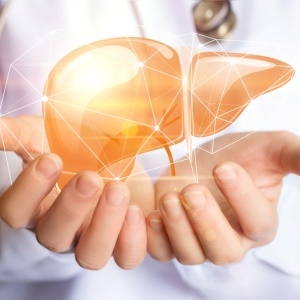
The liver removes or neutralises poisons from the blood, produces immune agents to control infection, and removes germs and bacteria from the blood.
A previous Health24 article states that there are more than 100 diseases that can affect the liver, one of which is non-alcoholic fatty liver disease (NAFLD).
What is non-alcoholic fatty liver disease?
NAFLD is the presence of extra fat in the liver not caused by alcohol – Harvard Health Publishing defines it as the presence of fat in more than 5% of liver cells. It is the most common liver disease in America and affects up to 25% of adults.
Although NAFLD is the most prevalent chronic liver disease in Western countries, the disease profile has not yet been described in South Africa.
NAFLD also raises your risk of heart disease and can lead to an inflamed liver, a condition called non-alcoholic steatohepatitis (NASH). Up to 40% of people with NAFLD develop NASH, which can lead to scarring of the liver. Severe scarring, called cirrhosis, increases your risk of liver cancer.
What causes NAFLD?
In the case of NAFLD, the main cause of fat build-up in the liver is excess weight, associated with dyslipidaemia (abnormally high LDL cholesterol levels and/or low HDL levels), high blood pressure and diabetes.
The prevalence of NAFLD has risen in conjunction with the increase in the number of overweight people worldwide. A diet of processed foods, refined carbohydrates combined with a sedentary lifestyle is exacerbating the situation.
Genetic predisposition may also play a role as some people with fatty livers do not have any of the above risk factors.
NAFLD is difficult to detect as there often are no symptoms. It is suspected when a blood test shows elevated liver enzymes. Doctors can make the diagnosis after ruling out other causes, but a definite diagnosis requires a liver biopsy.
A South African study published in the South African Medical Journal in 2010 found that (in the Western Cape) insulin resistance was the universal factor present in subjects with NAFLD. The degree of obesity was not associated with severity of the disease and the role of genetic risk factors in disease development and severity remains to be defined.
How to combat NAFLD
Liver damage can be halted by preventing further fatty build-up. This can be achieved by addressing underlying causes, i.e. obesity, diabetes and elevated blood lipids. The best way to do that is by losing weight through exercise and diet. Another way to combat liver damage is by ingesting phospholipids, which have been shown to help liver function by accelerating liver cell membrane regeneration and stabilisation.
A 2017 study found that high-intensity aerobic exercise improved hepatic fat content in sedentary obese men with non-alcoholic fatty liver disease.
As far as diet is concerned, following a plant-based diet like the Mediterranean or DASH diets, and limiting your daily alcohol intake to 20 to 30g (about a glass of beer or wine) may help you lose weight.
If you are severely overweight, the more weight you lose, the better – even losing a little can have an impact. A study in the August 2016 JAMA Internal Medicine found that people who lost just three to 6% of their body weight reduced their liver fat levels by 35 to 40%. The conclusion is that vigorous and moderate exercise are both equally effective in reducing intrahepatic triglyceride content and that the effect appeared to be largely mediated by weight loss.
Image credit: iStock




 Publications
Publications
 Partners
Partners















